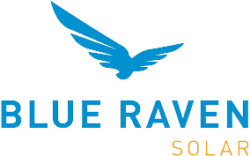Benefits of Solar Energy
Solar energy provides multiple advantages. Let's look at a few of them.
- Better energy independence: Adding a solar battery storage system lets you have dependable energy during storms and grid outages.
- Reduced carbon footprint: The sun is the universe's most abundant clean energy source, meaning you can lower or beat your home's dependence on fossil fuels.
- Lowered energy bills: You can dodge the added cost of grid-tied power by creating some electricity at home. Plus, many states provide net metering which can allow you to sell your unused energy back to credit part of your bill.
What Solar Incentives Are Available to Sandy Springs Homeowners?
Georgia homeowners who decide on solar could qualify for special financing, reimbursements, rebates and tax credits. Here are just a few of the region's incentive programs.
Incentive Type: Sales Tax Incentive
Incentive Amount:
100% exemption
Incentive Type: Rebate Program
Website: georgiapower.comIncentive Amount:
Single Family
Central AC Replacement: $50
Air/Duct Sealing: $300
Attic Insulation: $250
Heat Recovery Water Heater with Heat Pump: $250
Heat Pump Water Heater: $250
Solar Water Heater: $250
Home Energy Assessment: $150
Smart Thermostat: $75
Heat Pump conversion: $250
Multifamily
Central AC Replacement: $25
Air/Duct Sealing: $150
Attic Insulation: $125
Heat Recovery Water Heater with Heat Pump: $250
Heat Pump Water Heater: $250
Solar Water Heater: $250
Home Energy Assessment: $75
Smart Thermostat: $38
Heat Pump conversion: $125
Incentive Type: Loan Program
Website: cgemc.comIncentive Type: Personal Tax Credit
Website: ecowatch.comIncentive Amount:
30% federal tax credit for systems placed in service after 12/31/2021 and before 01/01/2033. Good for: solar water heat, solar photovoltaics, biomass, geothermal heat pumps, wind (small), fuel cells using renewable fuels.
How To Choose the Best Solar Company in Sandy Springs
The more comprehensive your provider search is, the better your solar system will ultimately perform. Here are some key items to remember while shopping for a solar provider.
Licensing and Training
Georgia doesn't have contractors' licenses specific to solar energy, but the law does require solar installers to be licensed electrical contractors. The Georgia Secretary of State manages licenses and business filings. Solar providers can also pursue certificates from standards organizations and trade groups. The most respected ones in the industry come from the NABCEP. Most company websites will prominently display earned credentials, but you should also ask your estimator for more information.
Cost of Solar Panels in Sandy Springs
Your photovoltaic panels' style will impact how much power you can generate. Monocrystalline panels are among the highest quality and perform the best but cost the most. Polycrystalline panels generate less, but they're a great traditional option for low budgets. Thin-film panels have a low cost and are excellent for non-traditional roofs, but aren't recommended for large home installations.
Additional accessories, such as electric vehicle (EV) chargers and battery storage, will increase your overall installation costs. However, they might make your solar system more efficient and convenient to use. Not every solar company offers these additional features, so look for a company that sells them if it's crucial for you.
Generally speaking, it costs about $18,700 for a five-kilowatt solar array in Sandy Springs. This table shows more specific costs for different solar panel types and system components in your area.
| Solar Panel Cost | Average Cost |
|---|---|
| Solar Monocrystalline | $1,126 |
| Solar Polycrystalline | $878 |
| Thin-Film | $513 |
| Solar Battery | $720 |
| Solar Home EV Charger | $2,702 |
Financing Solar Energy in Sandy Springs
There are various ways to pay for new solar panels, and the right one will reduce your expenses. A few of the most common options include loans, power purchase agreements (PPAs), cash payments, and leases. Though it involves a large up-front payment, cash is the most affordable choice because it doesn't accrue interest and qualifies you for incentives. Solar loans are the second most effective option. As with a home or auto loan, you'll pay a monthly rate towards system ownership, including interest. You can still apply for valuable solar incentives, and depending on your lender, you could put as little as $0 down. Solar leases allow you to pay a monthly fee to rent your panels, while a PPA lets you pay a fluctuating rate based on only the energy you use. We generally don't recommend these options since you won't own your system and are disqualified from solar incentives, but they might be appropriate in specific circumstances. Ask each business you're vetting about the financing options it offers. A staff member can help you determine the best option for your budget.
The table below lists the average payback periods for different capacities of solar systems in Sandy Springs.
The IRS allows you to claim a 26% federal solar tax credit on your new solar panels, so long as you purchase it before 2032. City and state governments and utilities might also offer their own incentives, financing programs, and rebates that could save you more money.
| Solar System Capacity | Estimated Payback period |
|---|---|
| 1 kW | 1.8 years |
| 2 kW | 3.5 years |
| 5 kW | 8.8 years |
| 10 kW | 17.7 years |
Ready to Get a Quote on Your Solar Project?
Please enter a valid 5-digit zip code!
Frequently Asked Questions About Solar in Sandy Springs
How much money could I save by going solar in Sandy Springs?
Is solar energy readily available in Sandy Springs?
Will solar panels improve my Sandy Springs home value?
Could I still use solar power if I live in a dark, rainy, or wooded area?
Is solar panel installation a fast job?
What is the average payback period for Sandy Springs solar panels?
How can I enhance my solar system's performance?
- optimize the panels' position with your solar installer
- regularly clean your solar panels
- upgrade to a more efficient inverter trim or cut down trees in the way of your panels
- use energy-efficient appliances
How does "net metering" work, and do I need to participate?
To share feedback or ask a question about this article, send a note to our Reviews Team at reviewsteam@thisoldhousereviews.com.



















